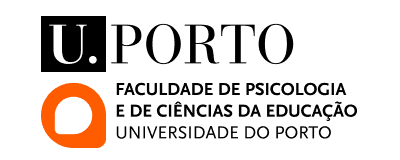Schools2030 Portugal
Collaborating with teachers in Lisbon, Sintra, Leiria, Santarém, Gondomar, and Porto.
In Portugal Schools2030 takes place in 15 School Clusters in different regions of the country. These clusters group together several schools from different education levels, frequently ranging from pre-primary to secondary school, and are located in territories where AKF is already working (in areas such as civil society, early childhood development, education, or environment) or intended to work, thereby strengthening inter-programmatic links within the communities.
Every school year, an innovation cycle initiates and the school cluster’s board decides how the design teams will be formed, following its own internal strategy. Schools2030 Portugal recommends that each design team be composed of:
- 4 to 8 teachers, preferably with direct contact with the cohort targeted by the intervention.
- Professionals who have a broad understanding of the school environment and students, such as psychologists, social workers, school mediators, special education staff, or assessment teams.
Design teams should encourage reflection and engagement with the challenges of education and should work in close consultation with students, parents, and members of civil society organisations.
Show More
The decision on which problem or issue to address is usually taken by the design team. AKF staff present the Schools2030 objectives and focal domains, underscoring that the innovation should strengthen the development of each cohort’s socio-emotional skills and literacy. In addition to the tools used in the “Evaluate/Explore” phase of the Human Centred Design training, the process of defining the problem on which the design team will focus is further supported by the results of the holistic learning assessment previously carried out by the team’s teachers, with the support of the Faculty of Psychology and Educational Sciences of the University of Porto.
The AKF team guides the school teams through the innovation cycle by facilitating sessions, promoting critical thinking, encouraging interaction among students, families, and the school community, networking with local and national stakeholders, and fostering a learning community to discuss teaching environments, learning challenges, and potential solutions.
After creating the innovation, the AKF team supports the design teams in implementing and evaluating it and facilitates opportunities to expand and scale the innovation to other school settings within the same clusters or in other clusters.
Pluralism as a Response to Contextual Needs
The growing number of migrant children in Portugal has brought both challenges and opportunities for schools. Schools2030 aims to support teachers in responding to the social, cultural, and linguistic diversity in their classrooms by developing and sharing innovations that promote more inclusive practices in increasingly pluralistic schools. From September 2025 onwards, the innovation cycles will focus on diversity and pluralism as their central theme, fostering the integration of migrant children and addressing their educational needs. Meanwhile, the programme team will continue supporting the refinement and dissemination of innovations developed in previous cycles.
Our Team in PORTUGAL
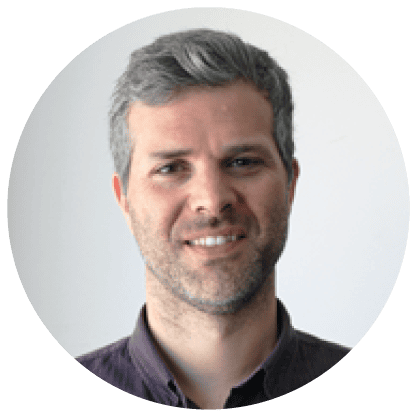
Filipe Martins
Senior Education Manager and Schools2030 National Coordinator

Fernando Santos
Senior Education Officer
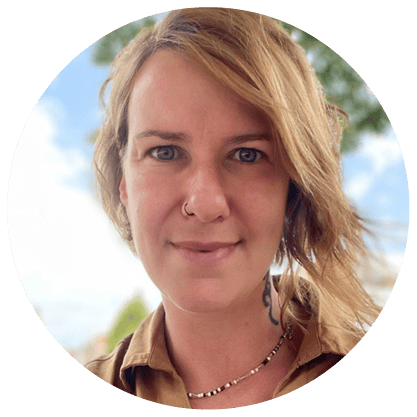
Ines Carvalho
Senior Education Officer

Ana Miranda
Communications Officer

Hugo Marques
Senior Education Officer
The Portuguese Education Context
Portugal, located on the Iberian Peninsula in Southern Europe, is a culturally diverse country due to its long history of contact with different regions of the world. Over the centuries, trade routes, migration, colonial relations, and the presence in overseas territories have brought people, languages, and traditions from various parts of the world. This history has left a rich and diverse cultural heritage, while also presenting ongoing challenges in terms of inclusion and equity.
Show More
A peaceful and relatively stable nation, Portugal has an educational system accessible to most. However, economically vulnerable rural and urban communities, as well as migrant children, often experience higher dropout rates and lower educational outcomes, highlighting the need to address equity in education.
In the Portuguese educational context, multiculturalism is increasingly reflected in the growing cultural, linguistic, and social diversity of schools, particularly in urban areas such as Lisbon and Sintra, where many students come from foreign backgrounds. To support these students, the government has increased the number of linguistic and cultural mediators and teachers trained in Portuguese as a Second Language (PNLM). Despite these efforts, teachers and schools continue to face significant challenges in welcoming, communicating with, and including these children and their families, and current support measures still fall short in meeting these needs.
As a result, schools are encouraged to adopt inclusive pedagogical practices and adapt curricula to reflect the cultural diversity of their students. Many teachers still lack some of the necessary resources and skills to fully support inclusion, highlighting the ongoing need for targeted support to ensure that all students feel they belong and can thrive in school.
Portugal’s education policy increasingly emphasizes the development of a broad set of skills beyond traditional academic learning, alongside the use of more innovative tools for student assessment. National education policies are also focused on increasing the decision-making powers of schools and municipalities and improving student agency in school governance. However, there remains a limited local evidence base to inform these decision-making processes at both school and policy levels.
The Portuguese Education Context
Portugal, located on the Iberian Peninsula in Southern Europe, is a culturally diverse country due to its long history of contact with different regions of the world. Over the centuries, trade routes, migration, colonial relations, and the presence in overseas territories have brought people, languages, and traditions from various parts of the world. This history has left a rich and diverse cultural heritage, while also presenting ongoing challenges in terms of inclusion and equity.
A peaceful and relatively stable nation, Portugal has an educational system accessible to most. However, economically vulnerable rural and urban communities, as well as migrant children, often experience higher dropout rates and lower educational outcomes, highlighting the need to address equity in education.
In the Portuguese educational context, multiculturalism is increasingly reflected in the growing cultural, linguistic, and social diversity of schools, particularly in urban areas such as Lisbon and Sintra, where many students come from foreign backgrounds. To support these students, the government has increased the number of linguistic and cultural mediators and teachers trained in Portuguese as a Second Language (PNLM). Despite these efforts, teachers and schools continue to face significant challenges in welcoming, communicating with, and including these children and their families, and current support measures still fall short in meeting these needs.
As a result, schools are encouraged to adopt inclusive pedagogical practices and adapt curricula to reflect the cultural diversity of their students. Many teachers still lack some of the necessary resources and skills to fully support inclusion, highlighting the ongoing need for targeted support to ensure that all students feel they belong and can thrive in school.
Portugal’s education policy increasingly emphasizes the development of a broad set of skills beyond traditional academic learning, alongside the use of more innovative tools for student assessment. National education policies are also focused on increasing the decision-making powers of schools and municipalities and improving student agency in school governance. However, there remains a limited local evidence base to inform these decision-making processes at both school and policy levels.
THE THREE-STEP MODEL IN PORTUGAL
ASSESS
Priority Learning Domains
PORTUGAL
Alongside its Assessment Partners (Faculty of Psychology and Education Sciences of the University of Porto), the Portuguese team has defined the learning domains on which the programme focuses. These were selected in consultation with a focal group of parents and teachers as well as the Secretary of State for Education.
The Schools2030 Portugal team has worked closely with Schools2030 Global Partners to adapt and translate the assessment tools across the different age cohorts.
These tools not only address holistic learning levels, but also the quality of the teaching environment and are designed to be easily used by teachers and support them in designing educational innovations.
Priority Learning Domains
PORTUGAL
PRE-SCHOOL
- Literacy
- Problem Solving
- Empathy
- Relationship Building
PRIMARY SCHOOL
- Literacy
- Problem Solving
- Empathy
- Reconciling Tensions
SECONDARY SCHOOL
- Literacy
- Critical Thinking
- Empathy
- Ethical Decision-Making
Access examples of assessment tools
from across our programme countries.
All these tools are available free to download below and will continue to be refined and iterated to ensure robust psychometric validity.
We move forward together in education if we work together…we need the practice, but we also need the research, the evidence, the student voice, we need everything that is happening in the Schools2030 programme.
Professor João Costa, Former Minister for Education, Portugal
INNOVATE
Schools2030 uses the Human-Centered Design (HCD) methodology as a model to generate teacher-led innovation in educational practices. In Portugal, teachers participating in the programme go through this process with the support of Schools2030 facilitators, so that they can independently implement tools for diagnosing and assessing literacy, and socio-emotional skills. This helps them to identify opportunities to improve both educational practices and the educational environment.
After identifying solutions to the identified challenges, teachers create a prototype of the idea and test it, following a collaborative learning-by-doing approach that allows them to refine and improve the idea before moving on to implementation.
Once an innovation has been developed, the Schools2030 facilitators support teachers in implementing it, refining it, and scaling it to other schools within or beyond their cluster.
Since 2024, with the support of the Santander Foundation, the Programme is focused on expanding its reach by training new Schools2030 facilitators. Teachers who go through the HCD cycle have the opportunity to become facilitators themselves, enabling them to spread the three-step methodology to other schools through accredited continuous teacher training courses. This approach empowers teachers as facilitators, with the goal of reaching 1,400 teachers at national level.
Download our HCD Tools in Portuguese to start creating education innovations in your school.
Schools2030 Human-Centred Design Toolkit
Full version
Schools2030 Human-Centred Design Toolkit
Facilitator Guide
Schools2030 Human-Centred Design Toolkit
School Leader Guide
SHOWCASE
Showcasing takes place at various stages of the Schools2030’ innovation cycle through a series of in-person events. These include three regional gatherings—North (Porto and Gondomar), Centre (Golegã, Alcanena, Marinha Grande), and Lisbon (Lisbon and Sintra)—where nearby school clusters present their work in an interactive and collaborative setting. Each regional showcase is hosted by one of the participating schools and involves not only the design teams but also school boards and local education stakeholders. Regional showcases focus on sharing the process and refining innovations before implementation, enriching them with the experience of other schools and identifying potential synergies.
At the local level, design teams organize showcases within their school clusters. They invite colleagues, local organizations and stakeholders relevant to the innovation’s theme, fostering engagement with the community, parents, teachers, and other partners to ensure successful implementation and explore the potential to scale the innovation to other schools within the cluster.
At the national level, an annual high-profile event brings together all participating school clusters and engages a wider audience, including policymakers, scientific partners, civil society organizations, and AKF collaborators. The national showcase provides a platform to share educational innovations implemented in schools, highlight their results, and demonstrate their potential for replication and impact at scale.
The different types of events are important moments for systematization and learning, allowing the creation of a sense of community within Schools2030, the sharing of experiences, and providing a platform to the schools and teachers involved in the programme.
News and stories from Portugal
IMPACT AND LEARNING
Portugal
The programme team and its scientific partners regularly produce learning and research reports that inform and strengthen the programme’s delivery. Read and share our latest learnings for Portugal or click below to browse all our reports.
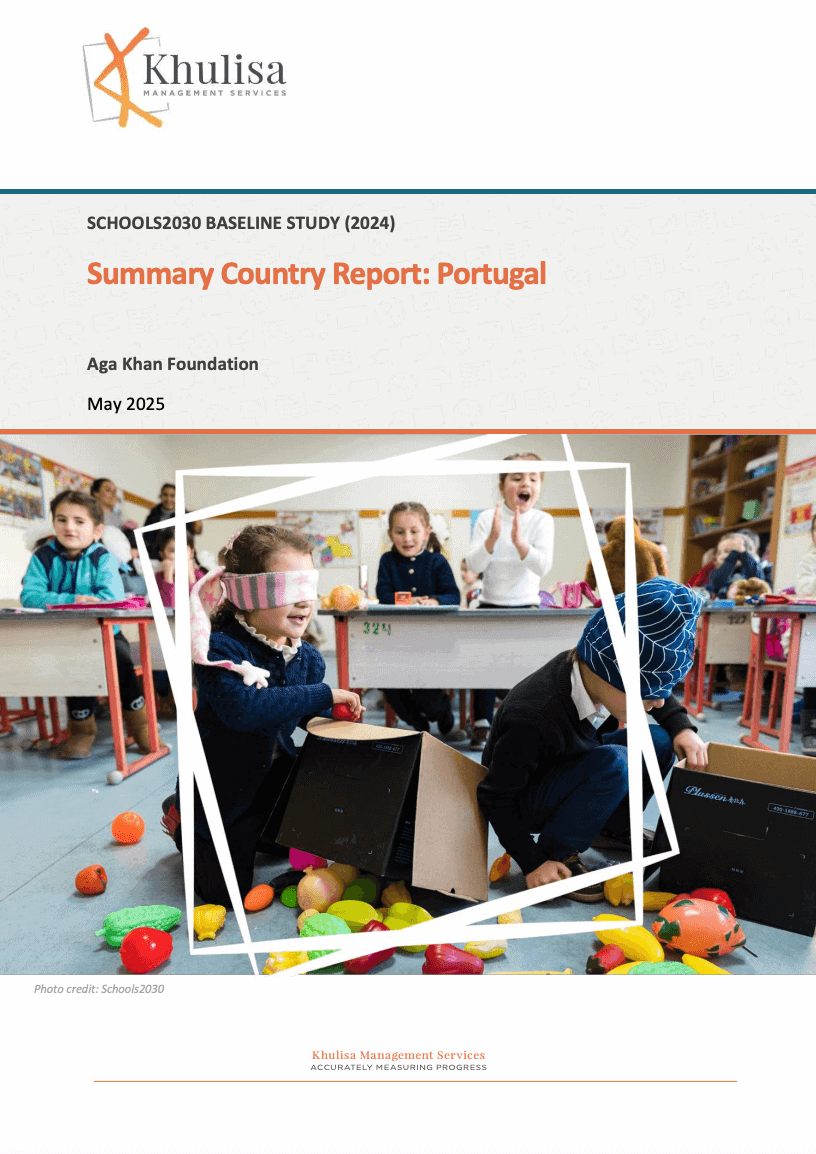
Schools2030 Portugal Baseline Evaluation
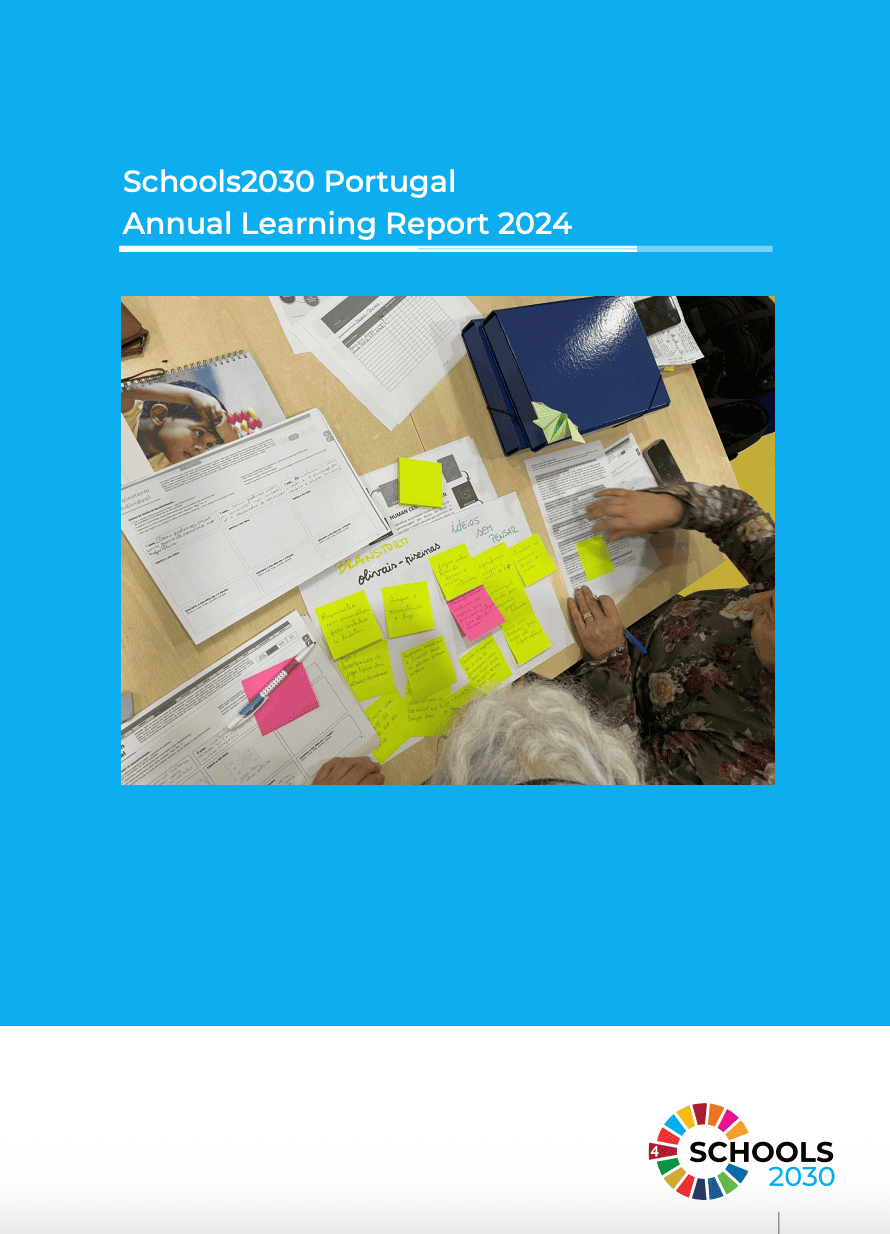
Learning Report 2024
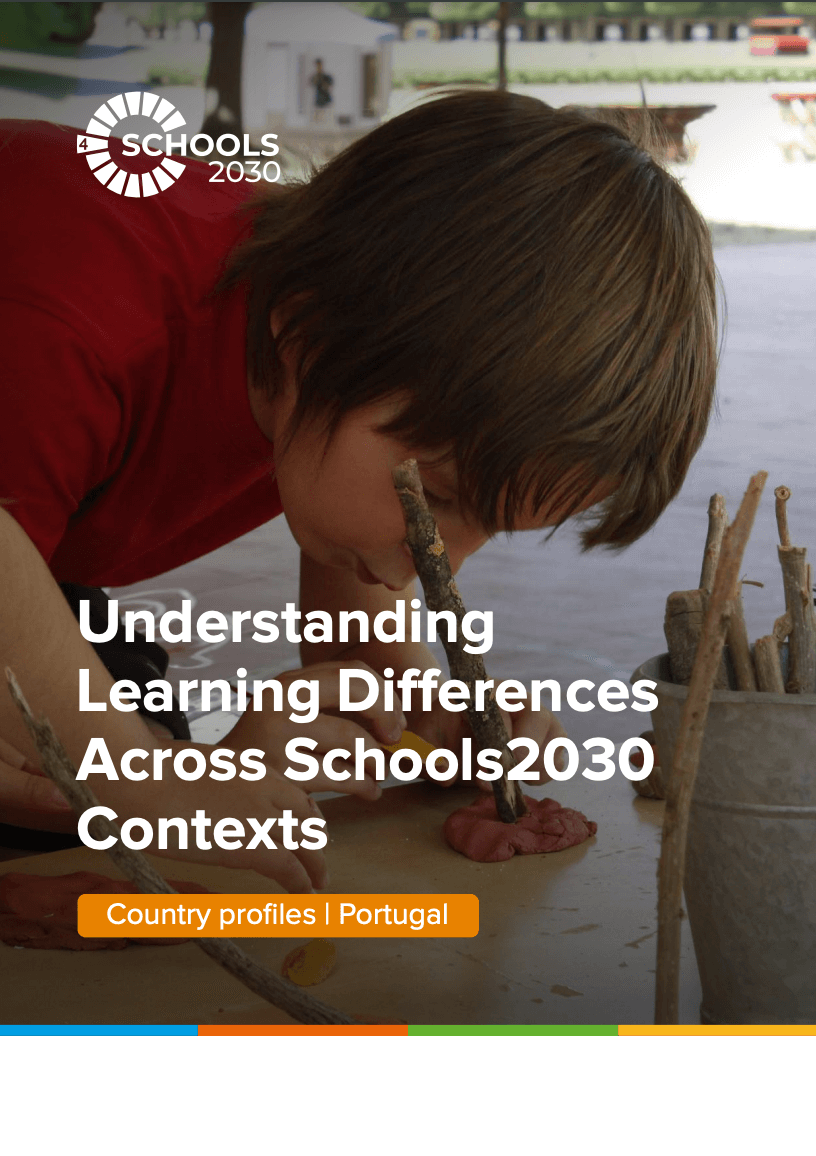
Learning Differences Report - Portugal
OUR PORTUGUESE partners
In-country Assessment Partner – the Center for Psychology at University of Porto – initially supported the development of Schools2030 assessment tools and currently offers ongoing guidance for teachers in using them. In-country Learning partner – Research Center for Sociology at ISCTE, Lisbon University Institute – tracks and evaluates the impacts of the innovations and teacher professional development, and produces yearly reports with recommendations for how to make the programme stronger.
Since 2024 Santander Foundation Portugal became a strategic partner for Schools2030 in Portugal, supporting a national-wide accredited teacher training programme based on Schools2030 three-step model that will reach 1500+ educators throughout the country.
Find out more about how our global and national partnerships work on our Coalition page.
Explore Schools2030 in our other countries.










